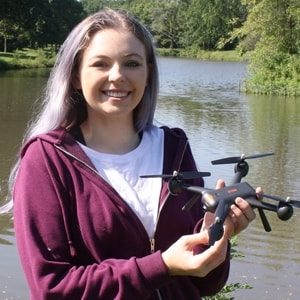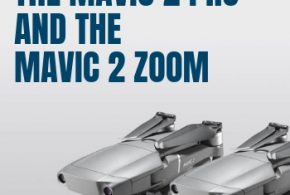Meet Matternet, The Startup That’s Using Drones To Change The World
When Andreas Raptopoulos and his team got stuck in a 20-truck convoy completely marooned in mud while navigating between villages in Papua New Guinea, it was incredibly frustrating. It was also a validation of his work.
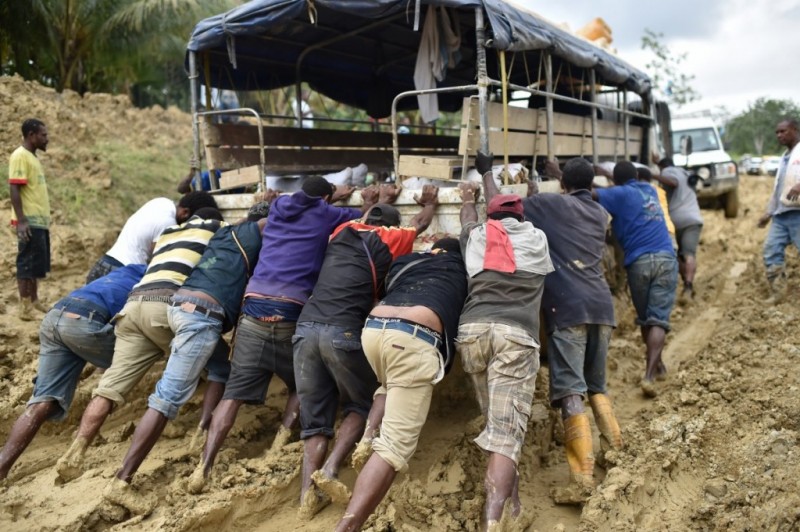
People try to dislodge a truck stuck in the mud in Papa New Guinea
Raptopoulos is the cofounder and CEO of a startup called Matternet, which makes drones, though he refuses to use that word. He prefers to call them small unmanned aerial delivery vehicles, or UAVs.
He started the company after having a “eureka moment” three years ago. He realized one billion people around the world live in areas lacking reliable road systems and that drones could provide a more reliable way to deliver critical supplies, like medicine.
That’s why Raptopoulos was in tuberculosis-ravaged Papua New Guinea in September, entrenched in mud. Matternet had connected with the international aid organization Doctors Without Borders to test whether its aerial vehicles could provide a good way to transfer TB diagnostics between villages. During the two weeks Matternet conducted its trials, multiple trucks got trapped.
“We had to do that trip four times and every time there was an element of fear,” Raptopoulos tells Business Insider. “We thought, ‘Will we make it?’ We talk a lot about the problem, but it became very real for us. What it really means, and all the emotions that go with it.”
Matternet’s trucks may have gotten lodged in mud between launch sites, but its drones navigated their routes without a hitch. Controlled completely via an app, a UAV bearing a spittle sample would take off, fly through the air, and land at a hospital as far as 25 kilometers away.
For Raptopoulos, it felt like a series of “pinch me” moments. Every time the team prepped a drone for a take-off, anywhere from 50 to 70 people would surround them. These were often people who live without running water or reliable electricity in their homes, and yet the drones seemed to make sense to them almost immediately.
“Most of these people have never seen one of these things, at least in the flesh,” Raptopoulos says, “But it’s amazing, the amount of joy it generates. It basically breaks with all your assumptions.”
That’s one of the underlying principles that Matternet builds upon: that its drones be so dead-simple to operate, that someone without significant technological training could instinctively figure out how to send one on a flight. That someone who had even the most minimal knowledge of how to operate a smartphone could direct the drone to deliver medicine, food, or other supplies from one location to another.
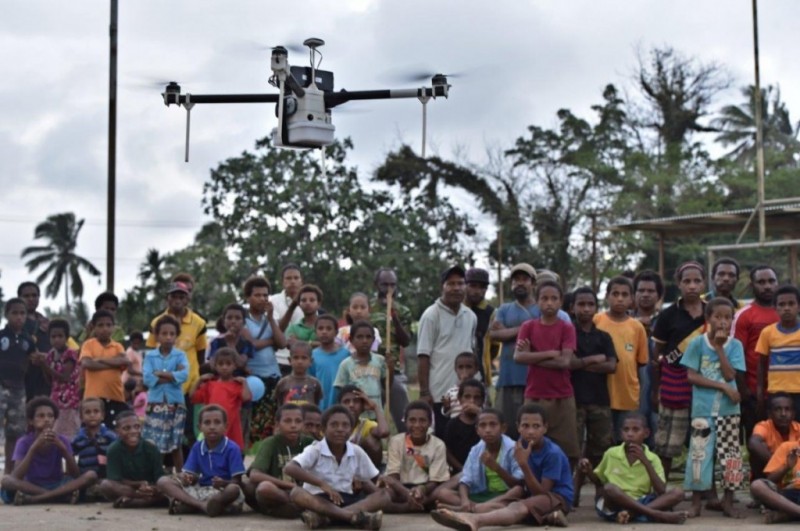
For that reason, Raptopoulos likes to describe Matternet’s UAVs as the Apple products of the drone space.
“We want this company to be at the intersection of the best technology and excellence in design,” he says. “We want to sell a vehicle to you that you can operate with an unprecedented ease of use.”
Right now, drones — and delivery drones in particular — are a buzzy topic, but when Matternet first got started, people mainly thought of them in terms of the military or security.
Today, they’re being used to deliver medicine in Germany and the Federal Aviation Administration recently approved them for use in shooting movie and TV scenes in the US.
“Things are changing fast in this space,” Raptopoulos says. “A year ago, there was no Amazon drone announcement. A month ago there was no Google drone coming out.”
Matternet’s early start combined with its powerhouse-team has it poised to take the drone space by storm and become one of “the next billion-dollar businesses,” according to Matternet investor Ravi Belani, managing director of Alchemist, the startup accelerator Matternet graduated from.
Raptopoulos’ vision for Matternet first hit him when he was attending Singularity University, a non-traditional, future-focused school that aims to empower its students to apply “exponential technologies to address humanity’s grand challenges.”
Working as part of a larger team, Raptopoulos got hung up on the fact that one-seventh of the Earth’s population lacked access to all-seasons roads and that developing a traditional, reliable transportation infrastructure in those places would take crazy amounts of money and upwards of 50 years.
He took a map of Africa and overlaid an internet-like network onto it. If he could build machines that could carry cargo short distances, each trip would be small, but the scale could be incredible. He says he got chills:
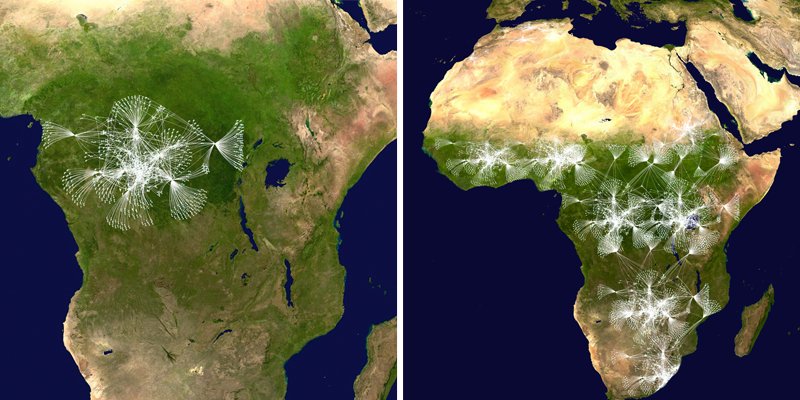
Envisioned drone network in Africa
Raptopoulos says when he and co-founder Paola Santana, previously a lawyer in the Dominican Republic, first started pitching the idea around, he got a lot of polite but confused responses. A lot of people thought they was crazy, Raptopoulos says. But the founders of Singularity University — futurist Ray Kurzweil and entrepreneur Peter Diamandis — loved the idea. After graduating from the University, they accepted Matternet into SU Labs, the school’s innovation accelerator.
Since then, Raptopoulos and Santana have built a lean team of 10 people who specialize in skills ranging from rocket science and engineering to law and regulation. The company has raised $2 million to date from the likes of Andreessen Horowitz, Alchemist Accelerator, and even the rapper Nas, but is eyeing a more significant Series A round in the near future.
Matternet’s plan is to create a full stack product, handling both the hardware and the software themselves, while simultaneously making sure to stay abreast of every new legal hurdle in the drone space.
Right now, the FAA bans the use of commercial drones, but it is supposed to release rules for small drones under 55 pounds later this year, in line with its complete plan for “safe integration” of commercial drones by September 2015. Meanwhile, a team at NASA led by Dr. Parimal Kopardekar is developing a drone traffic management program of its own to advise the FAA.
Matternet is one of the many UAV-focused companies that has met with Kopardekar’s NexGen technology team to discuss different ways to provide a structure to drone traffic.
The startup plans to announce its first product in the first quarter of 2015, and start shipping a few months later. The goal is to have concrete agreements with the likes of Doctors Without Borders and the World Health Organization, which it tested with in Bhutan, by the time Matternet’s UAVs get launched. Raptopolous couldn’t name a concrete price point, but guesses that the Matternet system will go for between $2,000 and $5,000.
By launching in areas like Papua New Guinea and Bhutan — where its drones are sometimes flying over swaths of jungle or sparsely populated desert and where there isn’t a strict existing aerial infrastructure — Matternet has fewer barriers to entry.
“The risk needs to be low if the UAV falls,” NASA’s Kopardekar tells Business Insider, noting that low-density areas make the most sense for drone testing and operations. “You need to be able to demonstrate the risk is very low and the benefits are high: That’s where you will see implementation happening.”
Although Raptopoulos landed upon the idea for Matternet because of a motivation to provide a transportation solution to parts of the world that lack access to all-season roads, the company has its sights set beyond humanitarian causes. After all, Matternet isn’t a service company; it’s a product company.
“We are pioneering this technology by helping partners find ways to put it in the field now, but our vision is that we should be putting this type of technology into everybody’s hands,” he says, “Whether their purpose is in Papua New Guinea or Rio or Istanbul or Mexico City or in Palo Alto, San Francisco, and LA.”
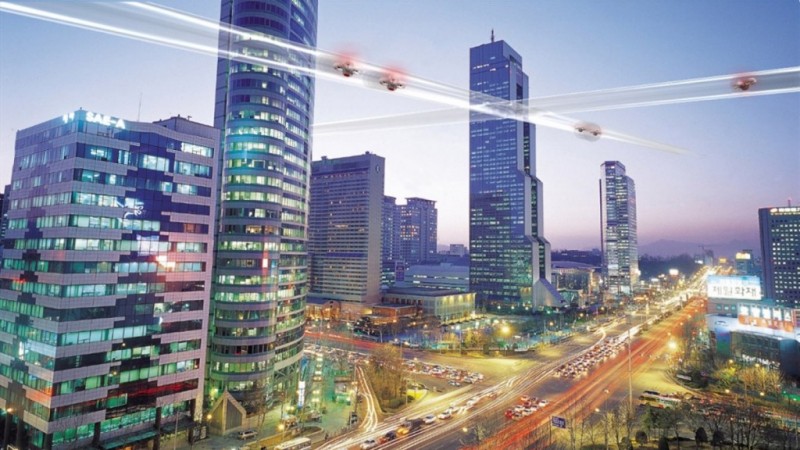
Matternet concept art
“Sometimes mission-driven entrepreneurs get so hung up on their mission that they’re missing the commercial opportunity, which they probably don’t emotionally care that much about,” Pascal Finette, who heads SU Labs, explains. “I think this duality — the dance between these two worlds — is something social entrepreneurs sometimes get wrong. But Andreas is just perfect. He’s phenomenal because he understands, ‘Hey, if we get this at scale and we can do this in the US and we become a big company, we can use all this as a force of good to do even more in the world.'”
Raptopoulos sees Walgreens using Matternet’s drones to deliver prescriptions, or grocery stores using them to deliver milk. Because the startup is small, lean, and fast-moving, he thinks it has a leg up on giants like Google or Amazon.
“I think Andreas is a beautiful, bi-focal CEO,” says Belani from Alchemist. “He is a true visionary who is always motivated by fundamentally changing the world. But he’s very practical in the near term what’s required to get things done. He’s not a head-in-the-clouds type of visionary. He’s incredibly practical with a strong street sense of business.”
Finette agrees: Raptopoulos and Santana dream big, but know how to actually move steadily forward. He laughs recalling how nonchalantly the team will talk about passing amazing, major milestones.
“They talk about it as if it’s nothing,” he says. That speaks to their capacity as entrepreneurs, he says, because they understand that every achievement is just a small stepping stone towards the big idea.
MatternetA Matternet UAV flying in Papua New Guinea
Right now, Matternet’s drones weigh well under 5 kilograms, can carry cargo over 0.5 kilograms, and fly over 25 kilometers on a battery charge. Their geo-fenced routes take into consideration weather data and terrain. They are equipped with cameras to help them navigate onto landing pads at their destinations. The entire system gets controlled by a smartphone app.
Raptopoulos calls it the “Apple II” of the drone industry: the “most easy to use, desirable, and safest personal flying vehicle” out there.
Not that Matternet is the only company trying to achieve that. Besides giants like Amazon and Google, there are other delivery drone companies out there, like Bizzby and Aria.
“A drone delivery network will be the most disruptive thing to hit the delivery space,” says Brody Buhler, partner at consulting firm Accenture, who focuses on postal issues. “If you don’t have drones on your five-year roadmap, you’re probably too far out.”
Talking to Raptopoulos, that future feels even closer. He gets almost electrically bright-eyed when he talks about the moments he’s had on trials in the Himalayas or Papua New Guinea. But his passion really radiates off him when he talks about what’s yet to come.
“I’m going to keep on having these ‘pinch me’ moments,” he says. “When we see our first big deployment in a city. When I’m able to see 20-30 crafts doing routine missions. When I’m able to actually see our drones in the sky and nobody will be paying attention, because they’re just an establishment. And we can’t wait.”
Via: Business Insider


